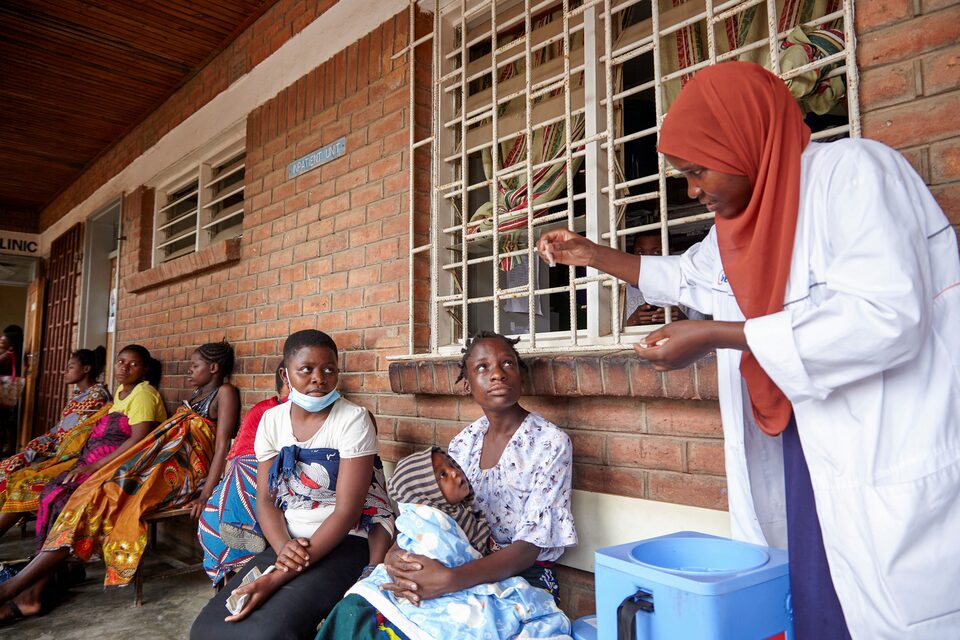

The World Health Organisation and its partners on Friday began the largest-ever global deployment of cholera rapid diagnostic tests to boost the fight against surging infections.
Malawi received the initial shipment of tests, kicking off a global diagnostics programme aimed at speeding up the detection of outbreaks.
In total, more than 1.2 million tests will be distributed to 14 high-risk countries over the coming months, the UN health agency said in a statement.
“Countries that will receive kits in the coming weeks in this largest-ever global deployment include those currently severely impacted by cholera outbreaks, such as Ethiopia, Somalia, Syria, and Zambia,” the statement said.
The programme is a joint venture, with the Gavi vaccine alliance handling funding and coordination and the UN children’s agency UNICEF taking care of procurement.
WHO said that it and the Global Task Force on Cholera Control were also lending their support.
The programme is aimed at helping countries speed up and improve the accuracy of cholera outbreak detection and response by boosting routine surveillance and testing capacity, the organisations said.
“We are experiencing an unprecedented multi-year upsurge in cholera cases worldwide, and today’s announcement provides a critical boost in the fight against the disease,” Gavi’s chief programme officer, Aurelia Nguyen, said in the statement.
Cholera, which is contracted from a bacterium generally transmitted through contaminated food or water, causes diarrhoea and vomiting and can be especially dangerous for young children.
Cases have been surging in recent years, with 473,000 globally reported to WHO in 2022 — double the previous year — and preliminary data indicating that more than 700,000 cases were reported last year.
The soaring number of outbreaks has created unprecedented demand for vaccines from impacted countries.
Even though the global supply of oral cholera vaccines ballooned eighteenfold between 2013 and 2023, the surging demand has created a global shortage, Friday’s statement said.
WHO last month called for “immediate action” to address the shortage, warning of “unprecedented pressure on the global stockpile of vaccines.”
The situation, it said Friday, has forced delays in preventative vaccination campaigns to preserve doses for emergency outbreak responses.
At the same time, recurring outbreaks in countries where emergency vaccination campaigns have already been carried out show a clear need to improve the speed and accuracy in identifying areas where new or persistent transmission is occurring, according to the statement.
“Surveillance diagnostics help pinpoint hotspots with great precision.
“This allows partners to target cholera vaccines to exactly the time and place where the limited supply will save the most lives,” Leila Pakkala, head of UNICEF’s supply division, said in the statement.
Hafsoh Isiaq is a graduate of Linguistics. An avid writer committed to creative, high-quality research and news reportage. She has considerable experience in writing and reporting across a variety of platforms including print and online.
The General Overseer of the Redeemed Christian Church of God (RCCG), Pastor Enoch Adeboye, has…
Osun State, known for its rich cultural heritage and dynamic socio-political landscape, remains a hub…
Tragedy struck in Ado-Ekiti, Ekiti State capital on Thursday, as an accidental discharge by a…
The Osun State chapter of the All Progressives Congress (APC) has warned Governor Ademola Adeleke…
A drinking competition in Agbarha community, Delta State, has reportedly resulted in the death of…
As of today, January 4th, 2025, the Nigerian naira has depreciated to an unprecedented level…
This website uses cookies.